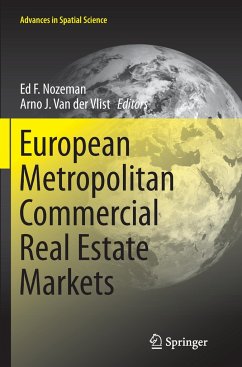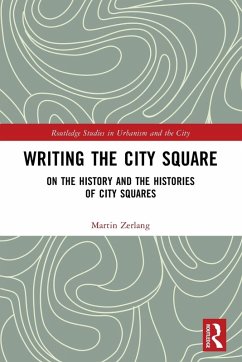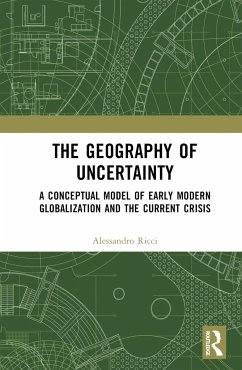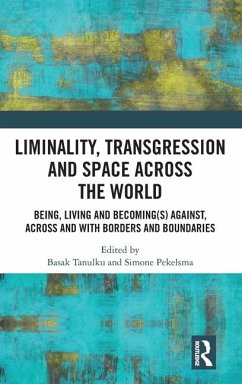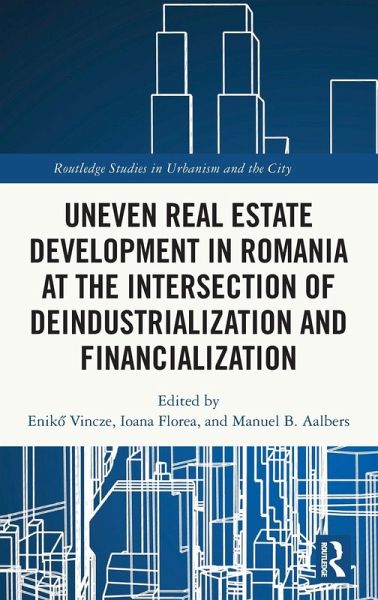
Uneven Real Estate Development in Romania at the Intersection of Deindustrialization and Financialization
Versandkostenfrei!
Versandfertig in 6-10 Tagen
137,99 €
inkl. MwSt.
Weitere Ausgaben:

PAYBACK Punkte
69 °P sammeln!
This book examines the progression of real estate development within the deindustrialization-financialization nexus. It explores the roles it has in semi-peripheral contexts such as Romania, where it overlaps with the process of the transformation of state socialism into neoliberal capitalism, viewed at the intersection of global, national, and local forces.The book focuses on real estate development in Romania as a product and a driver of capitalism. It contributes to ongoing debates in critical urban theories and Marxist perspectives in urban sociology. Focusing on the under-researched East ...
This book examines the progression of real estate development within the deindustrialization-financialization nexus. It explores the roles it has in semi-peripheral contexts such as Romania, where it overlaps with the process of the transformation of state socialism into neoliberal capitalism, viewed at the intersection of global, national, and local forces.
The book focuses on real estate development in Romania as a product and a driver of capitalism. It contributes to ongoing debates in critical urban theories and Marxist perspectives in urban sociology. Focusing on the under-researched East European region, it decenters social research and fine-tunes the political economy theory about state and economic restructuring. The book contains methodological and theoretical insights that are useful in other contexts beyond Romania and Central and Eastern Europe, especially in other (semi)peripheral emerging markets. The focus of critical inquiry into capitalist transformations adopted in this book can also support political activism. It uncovers the varieties of the deindustrialization-financialization nexus in real estate built on the dismantled pre-1990 socialist industrial plants. The chapters describe the advancement of real estate investments across second and third-tier cities, displaying uneven development and subordinate financialization at the intersection of local and global processes and political and economic actors.
It will be of interest to researchers and students of urban sociology, economic sociology, political economy, human geography, and political geography.
Chapter 3 of this book is freely available as a downloadable Open Access PDF at http://www.taylorfrancis.com under a Creative Commons [Attribution-Non Commercial-No Derivatives (CC-BY-NC-ND)] 4.0 license.
The book focuses on real estate development in Romania as a product and a driver of capitalism. It contributes to ongoing debates in critical urban theories and Marxist perspectives in urban sociology. Focusing on the under-researched East European region, it decenters social research and fine-tunes the political economy theory about state and economic restructuring. The book contains methodological and theoretical insights that are useful in other contexts beyond Romania and Central and Eastern Europe, especially in other (semi)peripheral emerging markets. The focus of critical inquiry into capitalist transformations adopted in this book can also support political activism. It uncovers the varieties of the deindustrialization-financialization nexus in real estate built on the dismantled pre-1990 socialist industrial plants. The chapters describe the advancement of real estate investments across second and third-tier cities, displaying uneven development and subordinate financialization at the intersection of local and global processes and political and economic actors.
It will be of interest to researchers and students of urban sociology, economic sociology, political economy, human geography, and political geography.
Chapter 3 of this book is freely available as a downloadable Open Access PDF at http://www.taylorfrancis.com under a Creative Commons [Attribution-Non Commercial-No Derivatives (CC-BY-NC-ND)] 4.0 license.





